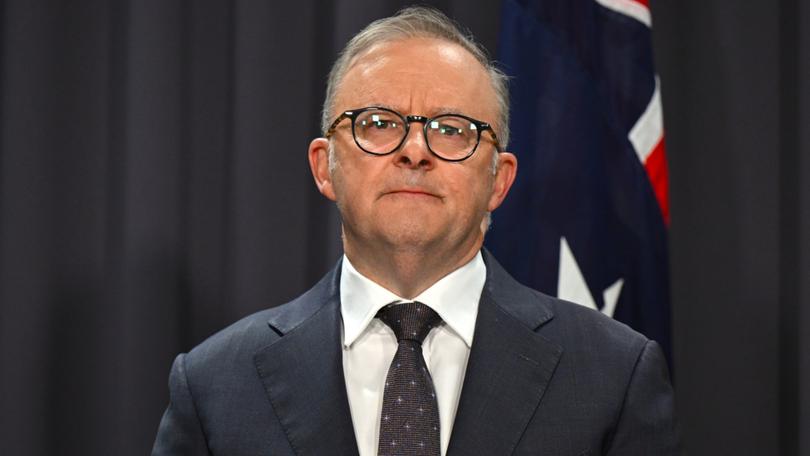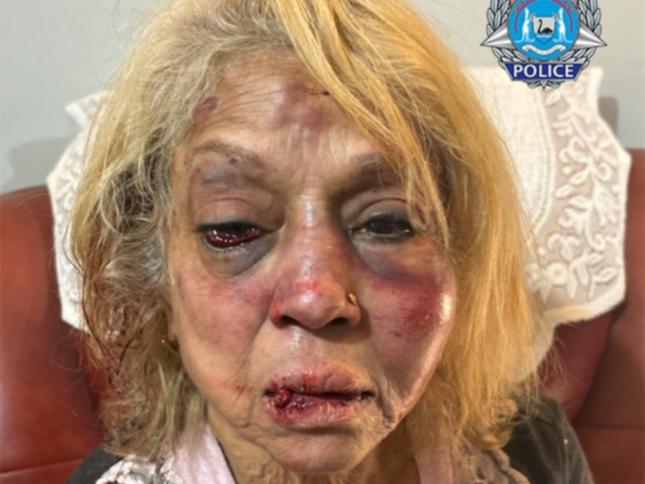Prime Minister Anthony Albanese and his ministers delegate responsibility for visa bungle
The man accused of bashing a Perth grandmother was among a group of former immigration detainees who were not required to wear ankle monitors under new visas issued in March due to a technical blunder.

The man accused of bashing a Perth grandmother was among a group of former immigration detainees who were not required to wear ankle monitors under new visas issued in March due to a technical blunder.
The Nightly can reveal that Majid Jamshidi Doukoshkan was allowed to remove his GPS tracker after the Commonwealth’s community protection board advised against imposing the condition as part of his re-issued visa.
Mr Doukoshkan is now facing charges over the alleged home invasion and brutal bashing of 73-year-old Perth grandmother Ninette Simons.
Sign up to The Nightly's newsletters.
Get the first look at the digital newspaper, curated daily stories and breaking headlines delivered to your inbox.
By continuing you agree to our Terms and Privacy Policy.Ms Simons and WA Premier Roger Cook are among those demanding answers about why Mr Doukoshkan wasn’t being monitored in the weeks before the alleged attack.
The 43-year-old was wearing an ankle bracelet when he was hauled before a Perth court in February over alleged curfew breaches.
The charges against him were later dropped due to a technical blunder that forced the Commonwealth to reissue visas for the entire cohort freed after the High Court ruling.
Mr Doukoshkan was among a group of ex-detainees whose new visa conditions didn’t include GPS tracking, based on advice from the board.
Immigration Minister Andrew Giles issued the original visas last November, which included curfew and electronic monitoring requirements.
However, he did not decide on the conditions placed on the re-issued visas, instead delegating responsibility to an official, a Federal Government spokesman said.
Figures supplied to Senate estimates showed the number of ex-detainees who were not being electronically monitored rose from 36 in February to 73 by late March.
The new visas were issued on March 13.
The Nightly has sought an explanation from federal authorities about why the board believed Mr Doukoshkan did not require a GPS tracker but did not receive a response.

Prime Minister Anthony Albanese on Thursday distanced his ministers from the board’s recommendation, telling ABC radio “the community protection board is, of course, a board that’s independent of politicians”.
He sidestepped questions on whether the board had failed, saying it would be inappropriate to comment on individual cases.
The suggestion that the board – rather than politicians – is responsible for decisions on visa conditions is contracted by evidence from Home Affairs and Border Force officials at Senate estimates earlier this year.
At a February 12 hearing, Border Force boss Michael Outram said the minister made decisions based on the board’s recommendations and his endorsement as commissioner.
The mixed messaging will intensify scrutiny on the Federal Government, which is in damage control after The Nightly revealed Commonwealth prosecutors did not oppose bail for Mr Doukoshkan at a February court hearing over repeated curfew breaches.
The eight-member board was established in December to advise the Federal Government on what conditions should be imposed on the cohort of immigration detainees released after the High Court’s ruling on the NZYQ case.
Chaired by Border Force assistant commissioner Sandra Jeffrey, the eight-person board includes three other Commonwealth officials and four independent members.
The independent members are former Victorian Police Commissioner Graham Ashton, former Queensland Deputy Police Commissioner Peter Martin, clinical psychologist Monique Phipps and youth justice expert Carmel Guera, according to the board’s website.
Mr Outram said the board considered a range of factors when making recommendations, including the individual’s criminal past, behaviour in prison or detention and medical history.
“So the board use their expertise incredibly thoroughly in each case to make recommendations,” he said.
